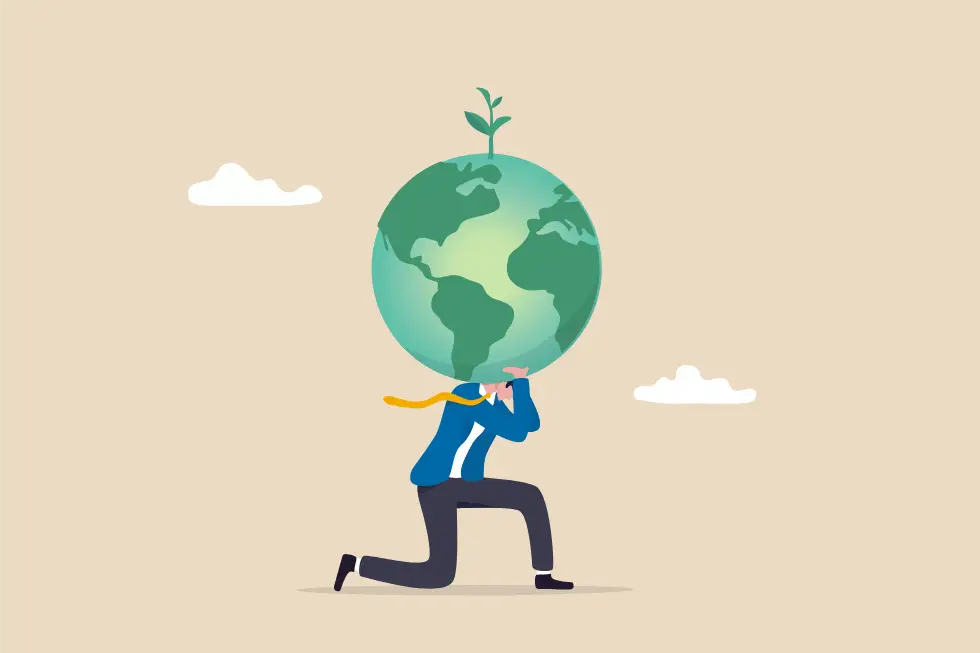The Universal Declaration of Human Rights (UDHR) describes 30 rights and freedoms that “belong to all of us and that nobody can take away from us.” We constantly debate and promote educational rights, employment rights, freedom of speech and expression, voting rights, health care rights, privacy rights, religious and cultural rights, and countless other rights in public forums and private circles.
There is a steady stream of Western academic research exploring, describing, and defending human rights. Western governments present themselves as the ultimate protectors of rights of all kinds and frequently introduce new policies and laws aimed at shaping society to reflect these rights. One might argue that the unconditional defense of freedoms and rights cannot go wrong. Or can it?
Rights cannot exist without duties
There is a deafening silence in Western education, social life, and political discourse about the need to first fulfill human duties if any rights are to be obtained. It is surprising and disturbing that there is no “Universal Declaration of Human Duties,” even though it is the fulfillment of duties, not rights, that provides the foundation upon which an individual can grow and a society can flourish.
The establishment of most rights is viable and sustainable only if a set of duties is first addressed. Rights are the spontaneous result of the fulfillment of a series of duties.
To illustrate the pernicious consequences of unconditionally granting rights without first requiring the fulfillment of a set of duties, let me use the right to freedom of opinion and expression, one of the rights on the UDHR list and one of the most popular rights in the West.
Freedom of opinion and expression is one of the socio-political cornerstones of Western societies and is unconditionally granted to every citizen. Yet it is obvious that, in order for an individual to make a valuable contribution to society, he must first have a thorough understanding of the issues on which he is expressing an opinion. Therefore, to exercise this right in any meaningful way, one must first fulfill several obligations. These obligations include gathering sufficient information about the issue under consideration, having the necessary background information and skills to analyze the information and spending sufficient time analyzing the information to draw sound conclusions. Only after these three obligations have been met can the individual form an opinion and, if he wishes, share it for the benefit of the community.
However, if these three obligations are not fulfilled first, the individual perspective cannot be considered an opinion, but rather mental noise, and its expression will be detrimental to the public understanding of the issue. This is truer today than ever, given the ease and speed with which (mis)information can be spread. Society, education and governments should therefore emphasize the obligation to be sufficiently informed and to understand the relevant issues before exercising the right to express an opinion.
How to achieve a proper emphasis on duties
By overemphasizing people’s rights and neglecting their duties, individualistic societies become fragile and prone to fractures between various self-serving, short-term values and goals. Western societies seem to have forgotten that most progress occurs when individuals focus on fulfilling their duties and that rights are the spontaneous outcome of this progress.
In the collectivist societies common in Asia, the interests and needs of the community come before those of the individual, and individual duties take precedence. From an early age, children are taught that they have duties to family and society and that they must sometimes sacrifice their personal interests and rights for the greater social good. Individuals are taught that they have a duty to learn, rather than a right to study, and that they have an obligation to work hard, rather than the right to a good job.
Prioritizing duties also leads individuals to perceive authority as something legitimate and necessary, and, consequently, to be more inclined to follow its directives. Accepting authority and following its directives, even if one does not fully agree with its purpose, is fundamental for the effective management of societies, making them more prosperous. This does not mean that individuals in collectivist societies do not enjoy rights. On the contrary, they may enjoy more rights than in individualistic societies, but these rights are contingent upon, and the natural outcome of, the fulfillment of a set of duties.
Western societies should move away from ignoring the need for their members to focus on their duties. Instead, they must re-emphasize the vital importance that individual duties play in fostering personal growth and ensuring the well-being of societies. In this sense, the West can find inspiration in collectivist societies that prioritize the community over the individual and accept significant levels of authority. After all, personal growth and social prosperity can only be achieved if each of us focuses on fulfilling our duties. Rights will follow spontaneously.
The views expressed in this article are the author’s own and do not necessarily reflect Fair Observer’s editorial policy.
Support Fair Observer
We rely on your support for our independence, diversity and quality.
For more than 10 years, Fair Observer has been free, fair and independent. No billionaire owns us, no advertisers control us. We are a reader-supported nonprofit. Unlike many other publications, we keep our content free for readers regardless of where they live or whether they can afford to pay. We have no paywalls and no ads.
In the post-truth era of fake news, echo chambers and filter bubbles, we publish a plurality of perspectives from around the world. Anyone can publish with us, but everyone goes through a rigorous editorial process. So, you get fact-checked, well-reasoned content instead of noise.
We publish 2,500+ voices from 90+ countries. We also conduct education and training programs
on subjects ranging from digital media and journalism to writing and critical thinking. This
doesn’t come cheap. Servers, editors, trainers and web developers cost
money.
Please consider supporting us on a regular basis as a recurring donor or a
sustaining member.
Will you support FO’s journalism?
We rely on your support for our independence, diversity and quality.










Comment